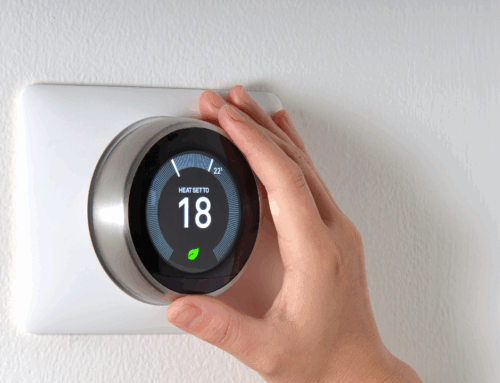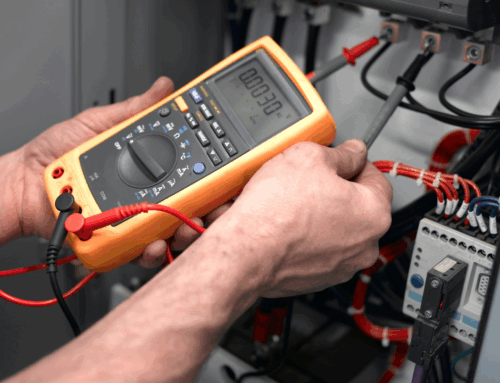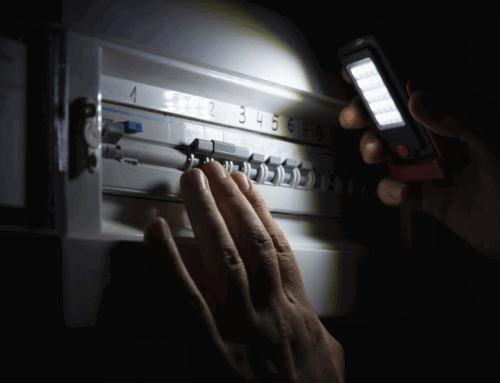Flickering lights in a commercial shop can be more than just an annoying distraction; they can signal underlying electrical issues that could affect your business. Understanding the causes of flickering lights and taking prompt action can help ensure a safe and well-functioning environment for both employees and customers.
1. Loose Bulbs or Fixtures
One of the most straightforward causes of flickering lights is loose bulbs or fixtures. Over time, vibrations from foot traffic, machinery, or even air conditioning systems can loosen the connection between the bulb and its socket. When this occurs, the electrical connection may become intermittent, leading to flickering.
What to Do: Inspect all light fixtures in your shop, ensuring that bulbs are securely tightened. If any fixtures appear damaged or loose, consider replacing them or consulting a professional electrician to evaluate the situation.
2. Voltage Fluctuations
Voltage fluctuations can also cause lights to flicker. In commercial settings, the demand for electricity can vary significantly, especially during peak hours. If too many devices are drawing power simultaneously, it can lead to a temporary drop in voltage, causing lights to flicker.
What to Do: Monitor the electrical load in your shop and avoid using multiple high-wattage appliances at the same time. If voltage fluctuations persist, it may be worth consulting an electrician to assess your wiring and circuit capacity.
3. Faulty Circuit Breaker
A malfunctioning circuit breaker can lead to flickering lights as well. Circuit breakers are designed to protect your electrical system from overloads and short circuits. If a breaker is faulty, it may not effectively regulate the flow of electricity, causing lights to flicker or even turn off completely.
What to Do: If you suspect a faulty circuit breaker, avoid resetting it repeatedly, as this may lead to further complications. Instead, contact a qualified electrician to inspect and replace the breaker if necessary.
4. Wiring Issues
Old or damaged wiring can lead to flickering lights, especially in older buildings. Wiring may degrade over time due to exposure to heat, moisture, or other environmental factors. Damaged wiring can create intermittent connections that result in flickering lights and pose a serious safety hazard.
What to Do: If you notice frequent flickering, it’s crucial to have an electrician conduct a thorough inspection of your wiring. They can identify any damage or potential hazards and recommend appropriate repairs or replacements.
5. Incompatible Fixtures
Sometimes, flickering lights can result from using incompatible fixtures or bulbs. For instance, if you use LED bulbs in a dimmer switch not designed for LED technology, it can cause flickering due to incompatibility.
What to Do: Check the specifications of your lighting fixtures and ensure that the bulbs you are using are compatible. If you’re using dimmable LED bulbs, make sure they are paired with a compatible dimmer switch.
6. External Factors
Occasionally, flickering lights may be caused by external factors, such as issues with the local power supply. Power outages or fluctuations from the grid can lead to temporary disruptions in service, causing lights to flicker.
What to Do: Monitor the frequency of flickering in relation to other businesses in the area. If multiple shops experience similar issues, it may indicate a broader problem with the power supply. Contact your utility provider for more information.
Flickering lights in your shop can be an indication of various electrical issues that need to be addressed promptly. Whether caused by loose bulbs, voltage fluctuations, faulty circuit breakers, wiring issues, incompatible fixtures, or external factors, identifying the root cause is crucial for maintaining a safe and efficient commercial environment. If flickering persists after performing basic checks, it’s wise to consult a qualified electrician to assess the situation and recommend the necessary repairs. Taking proactive measures can ensure a well-lit and welcoming atmosphere for your customers while safeguarding your electrical system. Contact us for more information.







Leave A Comment